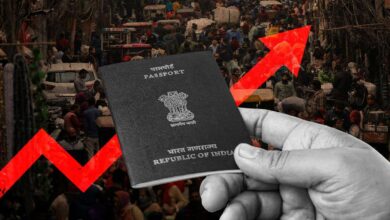Bihar assembly clears bill to hike reservation to 75%

Bihar assembly clears bill to hike reservation to 75%
The move by the Bihar Assembly to increase reservations in government jobs and educational institutions to 75% is a significant step towards promoting inclusivity and providing opportunities for various marginalized communities in the state. By extending the reservation quotas for Other Backward Classes (OBCs), Extremely Backward Classes (EBCs), Scheduled Castes (SCs), and Scheduled Tribes (STs), the government aims to address historical inequalities and promote social justice and empowerment.
The provision of 18% reservation for OBCs, 25% for EBCs, 20% for SCs, and 2% for STs is intended to ensure equitable representation and opportunities for these communities in the public sector and educational institutions. This initiative reflects the government’s commitment to creating a more inclusive and diverse society, where individuals from all backgrounds have equal access to employment and educational opportunities.
It’s important for the government to ensure that the implementation of these reservation policies is accompanied by measures that promote the quality of education and employment opportunities for all sections of society. Additionally, efforts should be made to monitor the effectiveness of these policies and address any potential challenges that may arise during their implementation.
By prioritizing the needs of marginalized communities and providing them with adequate representation and opportunities, the Bihar government can contribute to the overall development and progress of the state, fostering a more equitable and inclusive society.
The decision by the Bihar government to base the increase in reservation for backward classes on the findings of the caste survey reflects a commitment to ensuring that policy decisions are grounded in accurate and comprehensive data. By considering the share of backward classes in the state’s population, the government aims to ensure that the reservation policies effectively cater to the needs and representation of the marginalized communities.
The release of the caste survey findings, which indicate that the backward classes make up 64% of the state’s population, underscores the significance of addressing the socio-economic challenges faced by these communities. By acknowledging their substantial presence within the population, the government can effectively design and implement policies that cater to their specific needs and promote their social and economic upliftment.
It is crucial for the government to continue conducting regular surveys and assessments to ensure that the reservation policies remain relevant and reflective of the current demographics and socio-economic dynamics of the state. Additionally, efforts should be made to monitor the impact of these policies on the ground, and any necessary adjustments should be made to promote the effective implementation of these initiatives.
By aligning reservation policies with accurate data and regularly assessing the needs of the backward classes, the Bihar government can work towards creating a more inclusive and equitable society, where all individuals have equal access to opportunities for education, employment, and socio-economic development.
The socio-economic data derived from the caste survey report released by the Bihar government highlights the critical need for targeted measures to address poverty and uplift the socio-economic status of marginalized communities. The finding that 34% of Bihar’s population falls under the “poor” category, with a monthly income below ₹6,000, underscores the urgent requirement for comprehensive policies that address the challenges faced by economically disadvantaged individuals and households.
By acknowledging the socio-economic realities of a significant portion of the population, the government can formulate and implement targeted interventions that focus on poverty alleviation, access to basic amenities, and opportunities for sustainable livelihoods. It is essential for policymakers to prioritize initiatives that promote inclusive growth, enhance employment prospects, and provide social safety nets to uplift those living below the poverty line.
The unanimous support for the decision to increase the reservation quota based on the findings of the caste survey reflects a collective understanding of the socio-economic challenges faced by marginalized communities. This solidarity among political parties can serve as a foundation for collaborative efforts aimed at addressing the root causes of poverty and inequality, thereby fostering sustainable and inclusive development in the state.
Efforts to uplift the socio-economic status of marginalized communities must be comprehensive and multi-faceted, encompassing measures such as skill development programs, access to quality education, healthcare facilities, and initiatives to promote sustainable livelihoods. By adopting a holistic approach, the government can effectively tackle the challenges associated with poverty and ensure the overall well-being and prosperity of all sections of society.




